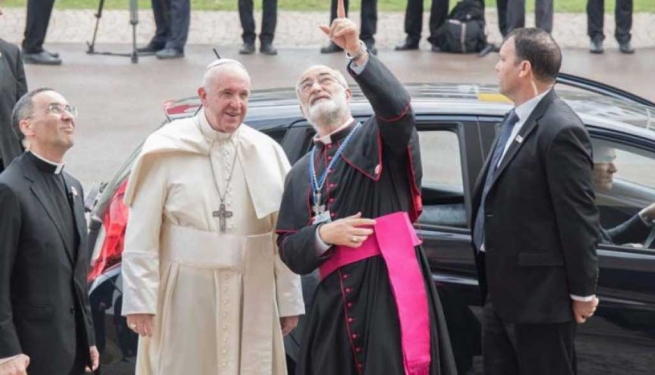A year after Pope Francis' visit, what is left of that trip and how did you develop it?
First of all, it brought an unspeakable memory. The memory of an experience of extraordinary ecclesial communion, the memory of a Moroccan people, with the authorities in the front line, happy to receive the Pope. To us, the visit brought the indications the Pope left us in his various interventions, as did the speech of His Majesty the King, extraordinary in content and form.
The Pope's visit brought us the commitment to orient our Christian life along the line of what the Pope taught us with his words, but also with his gestures, with his testimony, with his example.
The mission of the successor of Peter is to "confirm the brothers in faith". And Pope Francis did it abundantly with us. We felt understood, supported, valued, loved.
Is there a message from Pope Francis that has remained particularly impressed itself upon the Church of Morocco?
There are various things that have stuck with us. The first is that it is not a problem to be few, it is a problem to be salt that has lost its flavor or light that illuminates nothing. The second, that our Church must fulfill her mission of evangelizing, not with proselytism, but through testimony and interreligious dialogue.
Therefore, that the Samaritan dimension of our Church (and of the whole universal Church) is fundamental and is part of its identity and mission.
Is there a recommendation from Pope Francis that has most impressed you?
I said to the Pope that in Morocco we prefer not to talk about "migrants", but rather about "people in a situation of migration" or "migrant people". And he replied more or less like this: “Yes, yes, it must be so. Because we are unfortunately installed in a culture of the adjective, which labels and defines people through a characteristic: homosexual, migrant, political ... we must move on to a culture of the noun, in which we see, above all, the human being in his profound identity, in the substantivity. We see him as a person, as a brother ... but beyond the qualifications that may be fitting, so that his fundamental dignity is not diminished in anything."


